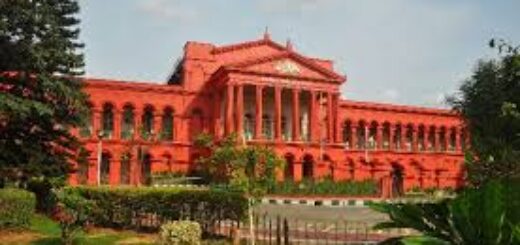The Supreme Court stated that a trial court cannot exceed the chargesheet when considering a discharge application.

The Supreme Court has emphasized that a Trial Court cannot look at any documents not included in the chargesheet when deciding on a discharge application. This statement came during a Special Leave Petition regarding a Delhi High Court order that instructed the Trial Court to review certain documents that were not part of the chargesheet when charges were framed. The two-Judge Bench, consisting of Justice Abhay S. Oka and Justice Augustine George Masih, labeled the High Court’s directions as “completely illegal,” stating, “The High Court has directed the Trial Court to consider documents not included in the chargesheet at the time of framing charges, which goes against the law established by this Court.”
Advocate Devendra Singh represented the Appellant, while Additional Solicitor General Satya Darshi Sanjay represented the Respondent-State. The case began with a petition for declaring a marriage null under the Hindu Marriage Act, 1955. Following this, a First Information Report was filed for issues related to cruelty, criminal breach of trust, and conspiracy against a married woman. A Writ Petition was later submitted to the High Court but was withdrawn. The Family Court then issued a decree of nullity for the marriage. The questioned High Court order stated that the decree of nullity and an appeal from one of the Respondents should be presented to the Trial Court. The High Court also instructed the Trial Court to consider the decree of nullity and the appeal during the charge arguments. The Supreme Court pointed out that the High Court did not evaluate the merits of the petition that sought to quash the FIR, which the petitioner claimed was an abuse of legal process.
The Supreme Court stated that the High Court made a serious mistake by telling the Trial Court to look at the decree of nullity and the appeal from the second respondent when setting charges. They referenced the case of State of Orissa v Debendra Nath Padhi (2005) to emphasize that the Trial Court should not consider any documents not included in the charge-sheet when deciding on a discharge request. The Court pointed out that the High Court did not evaluate the petition under Section 482 of the Criminal Procedure Code properly, calling the Order “completely illegal.”
The Court canceled the questioned Order and reinstated the Writ Petition in the High Court. It set a date for when the restored petition would be heard, and on that day, the High Court would schedule a hearing. The Court instructed that all parties present must appear before the High Court without needing further notice. “We clarify that all issues are open for the High Court to decide,” the Court added.
Cause Title: Rajnish Kumar Biswakarma v. State of NCT of Delhi [Special Leave Petition (Crl) 5290/2024)
Appearance:
Petitioner: Advocates Devendra Singh, Vivek Sharma, Vikas Sharma, Prashant Chaudhary, Ram Kumar, Rajeev Kumar Jha
Respondent: Additional Solicitor General Satya Darshi Sanjay, Advocates Mukesh Kumar Maroria, Meera Patel, Akshay Amritanshu, Bhuvan Kapoor, B K Satija, Lal Singh Thakur, Syed Mehdi Imam, Tabrez Ahmad, Sudhir Teotiya and Himanshu Vats








